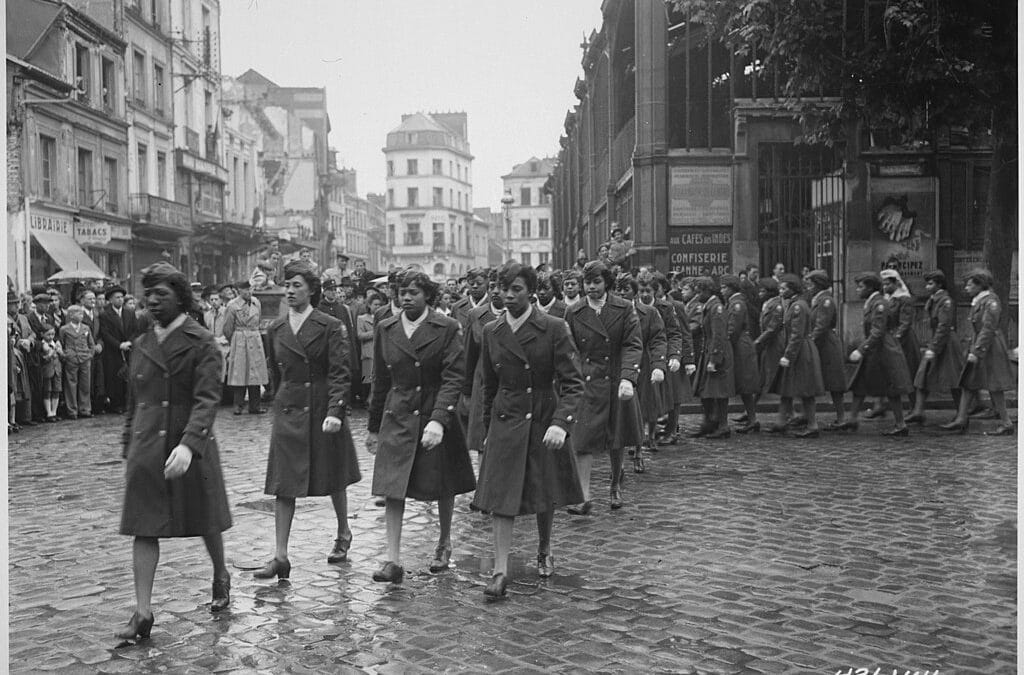By Amanda Huffman
Guest Blogger
Did you know that black women have played major roles in shaping and supporting the American armed forces throughout our entire history? The rich history of black women and American military history since the Revolutionary War is too extensive to be summarized, but in honor of Black History Month, let’s take a moment to appreciate some historical highlights.
Many black women played a role in supporting the Union during the Civil War, as well. Today black women continue to break barriers and lead our nation as military members. Black women now serve and lead in numerous roles that had for a long time only welcomed white men. Despite being pushed back, often viciously, by societal norms through much of history, women of color have sacrificed a lot and proven repeatedly that their valor, conviction, intelligence, and patriotism are at least as strong as those who had underestimated them.
The most well-known black female during the Revolutionary War was Phyllis Wheatley. Although not a soldier, Phyllis was educated by her slave owners and eventually published a book of poetry, and was eventually released from bondage by her owners. She often wrote anti-slavery messages that abolitionists used. She also agreed with independence from the Crown and even wrote a poem in support of George Washington’s Revolutionary War.
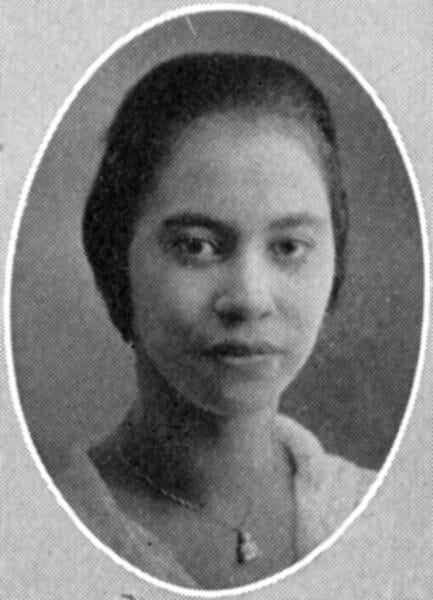
Civil War
Black women continued to advocate for freedom. And when the opportunity arose to support during the Union in the Civil War, they did. Among those, one of the most famous examples is Harriet Tubman, known for her role as a conductor on the Underground Railroad where she guided about 70 slaves to freedom. But she also is believed to be the first woman to lead a military operation. She was a spy for the Union and used her knowledge of landscape to track rebel camps and report on Confederate movement. She fought in battle directly as a soldier and commander, including her role in planning and leading the raid at Combahee Ferry, which liberated 700 slaves and scored an important victory for the Union.
Susan King Taylor shortly after making her way to freedom with her Uncle, she attached herself to the First South Carolina Volunteers, the first black regiment in the U.S. Army. Originally she worked as a cook and did laundry, but her literacy proved most useful as she helped troops learn to read and write. She wrote her story, Reminiscences of My Life in Camp with the 33d United States Colored Troops, Late 1st S.C. Volunteers, which you can still buy today. She was the only black woman from that time to publish her own account of her story.
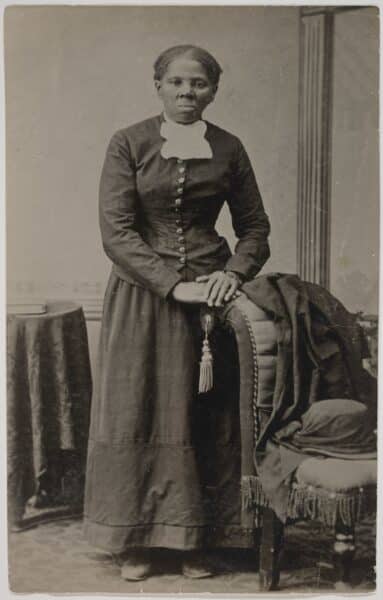
WWI
As many as 1,800 black women were certified by Red Cross as nurses for the military, but few were called up and none were sent overseas. The YMCA’s headquarters in Paris offered services to 200,000 black men overseas. The station was manned primarily by three black women Helen Curtis, Addie W. Hunton, and Katheryn M. Johnson.
WWII
While women were given more opportunities during World War II the same opportunities were not available to black women. The first women pilots served as Women Airforce Service Pilots (WASP), and despite a direct ban on having women of color, a handful of women of Chinese or Native American descent were pilots, but black women were directly banned from being part of this program.
The 6888th was a unit made up of primarily black women that worked to get backlogs of mail to soldiers across Europe. They received the Congressional Gold Medal in 2021 to highlight the work and importance of their role during the war. A recognition not given to them when they came home from Europe.
Many women signed up to serve to support the war effort. They were segregated and many were not given the opportunity to serve overseas.
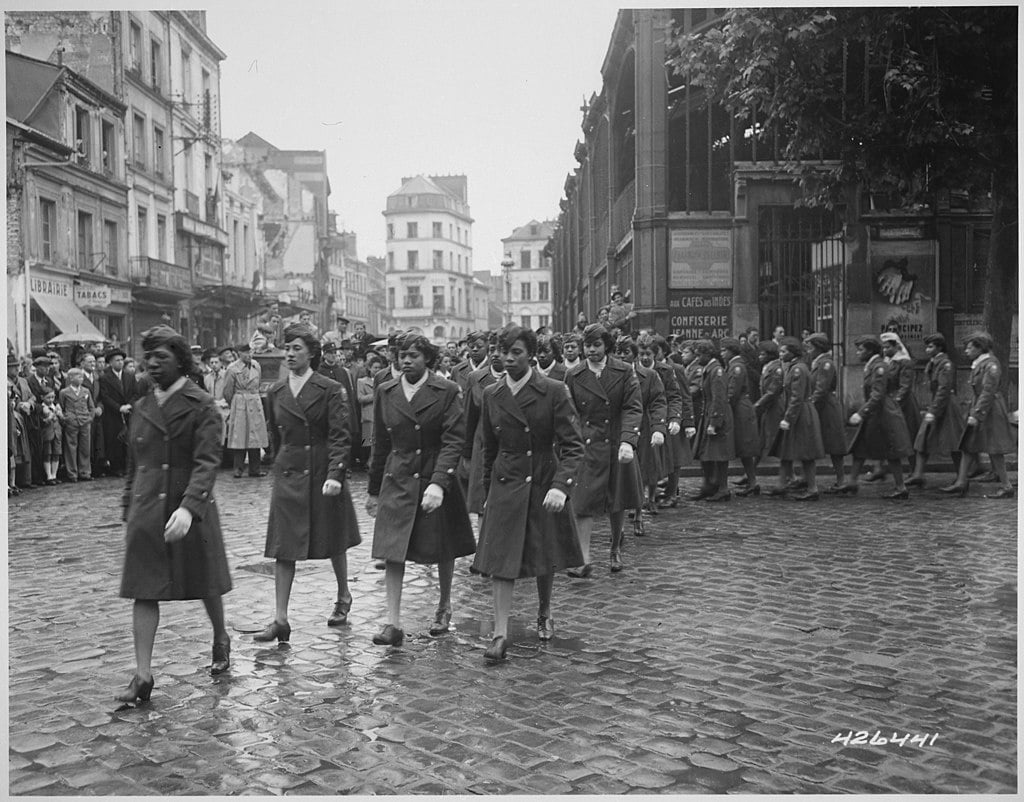
Korea/Vietnam Era
The Korean war was the first war since the Civil War that black and whites fought together on the battlefield. Women were considered an option for recruitment because they were cheaper to train than men. Captain Elenor Yorke was a nurse who served overseas in Korea. She spent two years in Japan and eight months in Korea serving wounded members. Only about 600 women served in Korea during the war and only a few were black.
More women served and were sent overseas during Vietnam. They filled the roles of nurses, secretaries, analysts, and more. A number of women received medals for their bravery and sacrifice overseas. Major Marie L. Rogers, Army Nurse Corps, was an 18-year Veteran, who served in Korea and Viet Nam; she received the Bronze Star from President Lyndon B. Johnson for distinguished service regarding group operations against a hostile force in Viet Nam. Army Nurse Diane M. Lindsay was the first black nurse to receive the Soldier’s Medal of Heroism for her actions and was later promoted to captain.
Specialist Grendel Alice Howard was an administrative assistant in the First Logistical Command Headquarters at Long Binh. She interviewed soldiers and wrote stories about them for publication. After a 34-month tour, she was promoted to Sergeant First Class and later to Sergeant Major. She earned the Bronze Star with the Oak Leaf Cluster and the Army Commendation Medal with Oak Leak Cluster.
Black women continued to break barriers and chart the way for the next generation during Operation Desert Storm, Enduring Freedom, and Iraqi Freedom. But they still face challenges that their predecessors faced in gender and race. But they continued to thrive. retired Major Phobe Jeter was the first person and the only woman to lead a team that destroyed a SCUD missile during Operation Desert Storm. And women like Second Lieutenant Emily J.T. Perez made history when she was selected as the first black woman to be selected as the Cadet Brigade Command Sergeant Major for the class of 2005. She was also the first person from her class to be killed in combat, dying in 2006 by an IED. And retired Lieutenant General Nadja West was the first black woman to advance to the rank of Lieutenant General in 2015.
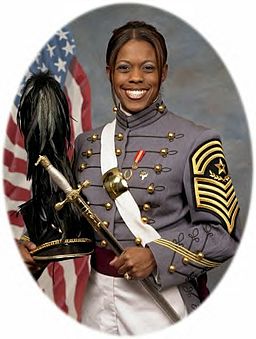
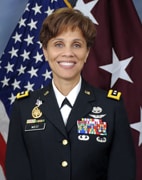
There are still more glass ceilings to be broken and there is no doubt that black women will continue to break them and leave their mark on the U.S. military.
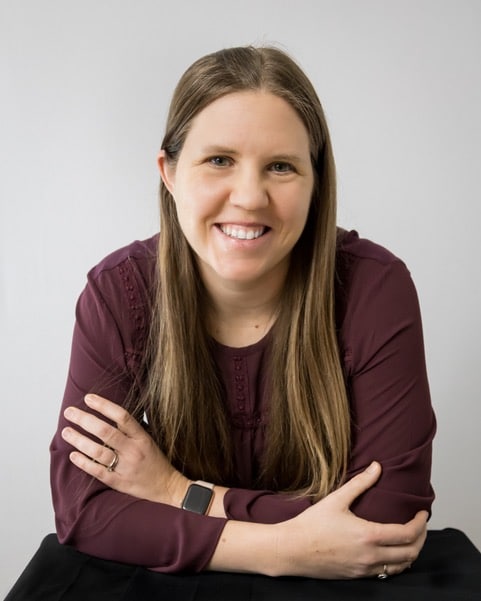
Amanda is a military Veteran who served in the Air Force for six years as a Civil Engineer who served on a combat deployment with the Army in Afghanistan. She traded in her combat boots for a diaper bag to stay home with her two boys and follow her husband’s military career in the Space Force. Amanda is the host of the Women of the Military podcast. There she shares the stories of women who have served or are serving in the military. The podcast has over 200 episodes and over 100K downloads. Amanda is also an author and has published two books. Her first book, Women of the Military tells the stories of 28 military women who served in the military. Her second book, A Girl’s Guide to Military Service, is the IBPA Benjamin Franklin Gold Winner for Teen Non Fiction. It is a guide for high school girls considering military service to help them build a strong foundation for their future career. She also works as a freelance writer and has been featured in a number of military publications including The War Horse, Military.com, Military Families Magazine, Clearance Jobs, Military Spouse Magazine, and more.

